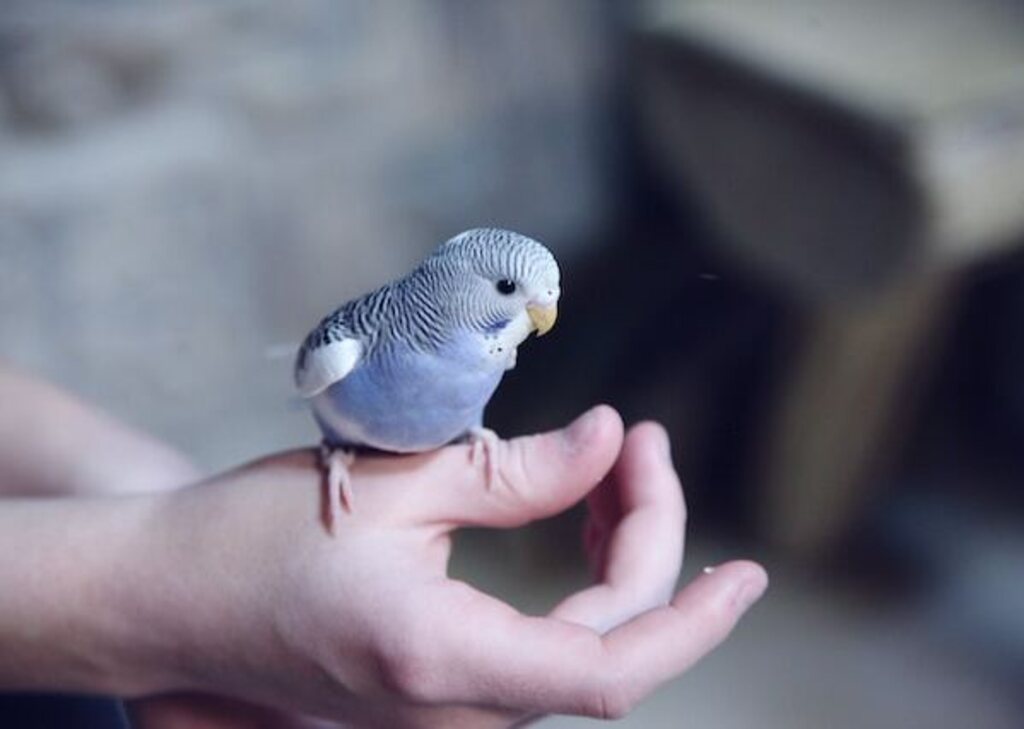Do birds bond with humans? Absolutely! Prepare to be charmed and amazed as we embark on a feathery adventure, exploring the surprisingly close relationships these winged wonders can form with us.
From heartfelt anecdotes to the science behind avian bonds, discover the delightful world of human-bird connections. Get ready to be captivated!
Table of Contents
- 1 Do Birds Bond with Humans?
- 2 Understanding Bird Bonding
- 3 Factors that Influence Bird-Human Bonding
- 4 How to bond with your bird?
- 5 The Benefits of Bird-Human Bonding
- 6 Conclusion
- 7 FAQs: Do Birds Bond with Humans?
- 7.1 Can birds form bonds with humans?
- 7.2 How do birds show affection towards humans?
- 7.3 Are certain bird species more likely to bond with humans?
- 7.4 How can I build a bond with my pet bird?
- 7.5 Do birds remember their human owners?
- 7.6 Can birds become emotionally attached to humans?
- 7.7 What are the signs of a strong bond between a bird and a human?
- 7.8 Can birds bond with multiple humans?
- 7.9 How long does it take for a bird to bond with its owner?
- 7.10 Is it possible for wild birds to bond with humans?
- 8 Author
Do Birds Bond with Humans?
Yes, birds can indeed form strong bonds with humans. While each bird has its own unique personality, many species have the capacity to develop deep connections with their human caretakers.
These bonds are often built on trust, mutual respect, and consistent social interaction.
Whether it’s through companionship, shared activities, or affectionate gestures, birds can bring joy and companionship into the lives of their human counterparts.
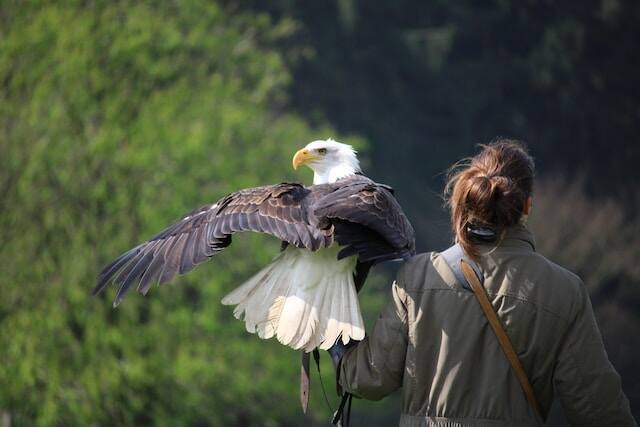
Explanation of the topic
The topic of bird-human bonding refers to the close relationship that can develop between a bird and its human caretaker.
This bond can manifest in various ways, including increased trust, affection, and communication.
Birds have been observed to form strong bonds with their human caregivers, often seeking out their company and showing signs of distress when separated from them.
Importance of understanding bird-human bonding
Understanding bird-human bonding is crucial for several reasons. First, it promotes better welfare for birds in captivity.
By fostering a strong bond with their caretakers, birds are more likely to feel secure in their environment and exhibit healthy behaviors such as vocalization and play.
Additionally, a positive relationship with humans can help prevent negative behaviors such as aggression or anxiety.
Secondly, understanding bird-human bonding can also provide insight into avian psychology and social behaviors.
Many species of birds exhibit complex social structures in the wild that include pair-bonding or cooperative breeding arrangements.
By studying the bonds that form between birds and humans in captivity, researchers may be able to shed light on how these relationships develop naturally in the wild.
Brief overview of the article
In this article, we will delve into the fascinating world of bird-human bonding. We’ll start by understanding the different types of bonds that can form between birds and humans.
We’ll then explore the factors that play a role in shaping these bonds, such as species-specific traits and environmental conditions.
Additionally, we’ll provide practical strategies for building trust with your feathered friend.
Along the way, we’ll also uncover the numerous benefits associated with bird-human relationships, including stress reduction.
Finally, we’ll wrap up with some concluding thoughts on why this bond holds such significance.
By the end of this article, readers will have a better understanding of how birds form bonds with humans and what benefits can be gained from nurturing these relationships.
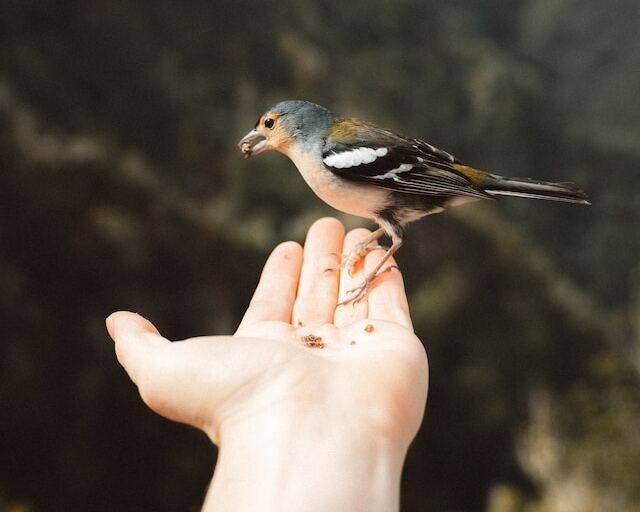
Understanding Bird Bonding
Birds are social creatures that possess the ability to form attachments to other members of their species, as well as human beings.
The process by which birds develop an emotional connection with humans is known as bird bonding.
It helps in forming a long-term relationship between birds and humans, and it requires patience, trust, and understanding from both parties.
Definition of Bird Bonding
Bird bonding refers to the creation of a meaningful relationship between a bird and its owner.
It is a process by which birds establish emotional connections with humans through socialization, imprinting, or conditioning.
This bond allows for mutual trust and understanding that helps in developing better communication between the bird and its owner.
Types of Bird Bonding
There are three types of bird bonding: socialization, imprinting, and conditioning.
Socialization:
Socialization involves exposing birds to different experiences that allow them to learn how to interact with others effectively.
For example, exposing young birds to different people helps them understand the expressions and vocalizations associated with different human emotions.
Socialization also enables birds to build trust with their owners.
Imprinting:
Imprinting occurs during early development stages, when infant birds learn about their environment through observation.
Birds can imprint on anything they see during this stage; therefore, it is essential for owners to expose their young pets to new environments while keeping them safe from potential danger.
Conditioning:
Conditioning involves teaching birds specific behavior patterns through reward-based training techniques.
This type of bonding is most effective when used in conjunction with socialization or imprinting techniques.
The Importance of Early Socialization for Birds
Early socialization plays an important role in developing healthy relationships between birds and humans.
Exposing young birds to different people, sights, and sounds helps them build trust, recognize different emotions, and understand how to communicate effectively with their owners.
Socialization also helps birds understand what is expected of them in different situations and environments, making it easier for them to adjust to new experiences.
Understanding the types of bird bonding is crucial in forming a meaningful relationship with your feathered friend.
Socialization, imprinting, and conditioning are all processes that help create healthy relationships between birds and humans.
Early socialization is particularly important as it leads to the development of trust and effective communication skills between birds and their owners.
Applying these techniques can lead to a fulfilling relationship with your pet bird for years to come.
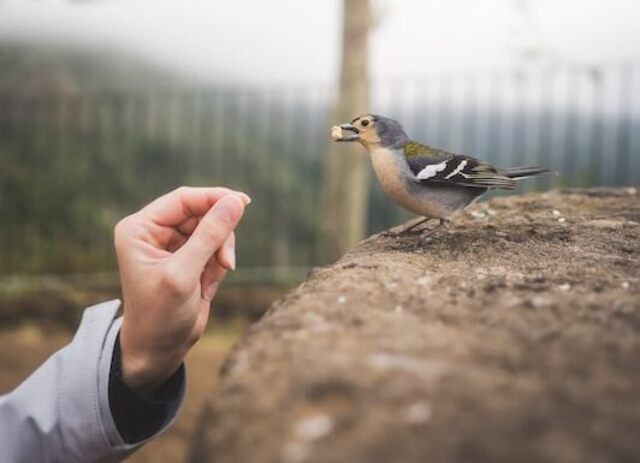
Factors that Influence Bird-Human Bonding
Bird-human bonding is an intricate process, and there are several factors that can affect the strength of the bond.
Understanding these factors can help bird owners provide a suitable environment for their feathered friends, leading to a deeper and more meaningful relationship.
The following section discusses two primary factors that impact bird-human bonding: species-specific traits and behaviors and environmental conditions.
Species-Specific Traits and Behaviors
Different bird species have unique behavioral patterns that influence their bonding with humans. For instance, Parrots and Cockatoos are considered highly social birds with strong emotional attachments to their owners.
These birds thrive on interaction, attention, and physical touch from their human companions. They need regular exercise, playtime, mental stimulation through training or tricks to keep them happy.
On the other hand, Finches and Canaries are relatively independent birds that tend not to develop strong attachments with humans.
Despite this independence streak, they still need quality time spent with humans, such as talking to them or singing.
Birds of prey like eagles or hawks have a completely different type of behavior as they are not domesticated birds. Hence, they do not bond well with humans as compared to other pet bird species.
Environmental Factors That Affect Bird-Human Bonding
The environment in which your pet bird lives has a considerable effect on its bond with you.
Provision of food & water is crucial for ensuring good health in your feathered friend, which directly impacts its overall mood & physical wellbeing.
Apart from providing basic necessities such as food & water; spending quality time with your bird is essential in developing a strong emotional bond between you both.
Regular interaction can include training exercises such as learning new words/songs or playing games together, which helps build trust over time.
Providing your pet bird with a safe & comfortable living space is also crucial. A bird may not bond with its owner if it feels threatened or uncomfortable in its environment.
Therefore, providing a safe and comfortable living arrangement for your feathered friend can help establish a more meaningful connection.
Understanding these factors that affect bird-human bonding can help pet owners create an environment that fosters strong emotional connections between them and their feathered friends.
By giving your bird the necessary attention, care, and comfort they need to thrive, you are building a friendship that will last for years to come.
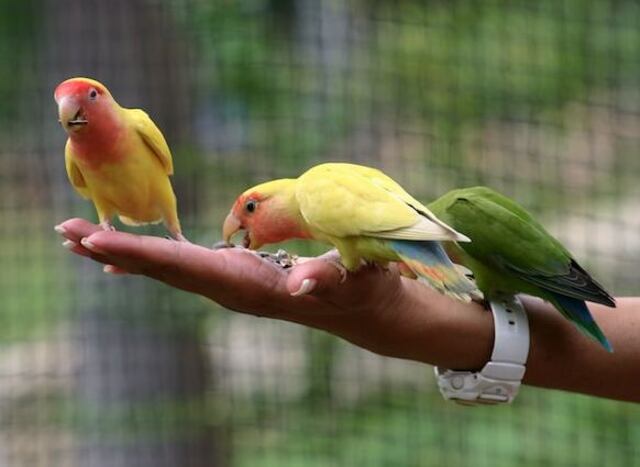
How to bond with your bird?
Birds are unique pets that require special attention and care. Building a strong relationship with your bird takes time, patience, and dedication. Here are some tips to help you bond with your bird:
Establishing trust with your bird
The first step in bonding with your bird is to establish trust. Your bird needs to trust you before it can feel comfortable around you.
Start by approaching it slowly and calmly. Speak softly and move gently around the cage or perch.
Offer treats like millet or fruits from your hand, so that the bird learns to associate you with positive experiences. Avoid sudden movements or loud noises that could scare the bird.
Be consistent in handling and interacting with your pet each day to maintain its comfort level. Remember that birds can sense anxiety or fear in humans and will be more likely to be wary of them.
Learning about your bird’s likes and dislikes
Just like people, birds have their own preferences too! It’s important to learn what activities or types of food they enjoy so you can provide them a better quality of life.
Observe their behavior closely – do they prefer one toy over another? Do they enjoy music?
What is their favorite treat? By learning these details, you can plan activities such as playtime outside of the cage or interactions that will make them feel more comfortable around you.
Spending quality time with your bird
Spend time daily interacting with your pet by playing games, teaching new tricks, grooming such as preening feathers, talking amongst other things.
Even if it’s just a few minutes each day, consistent interactions will show the animal how much it means to you.
You can even set aside specific times during the day when both of you interact together consistently. The more quality time spent together, the stronger the bond between you and your bird will become.
Communicating effectively with your bird
Communication is key to building a strong relationship with your bird. Birds have different ways of expressing themselves, so it’s important to learn their body language and vocalizations. Pay attention to the sounds and movements they make when they’re happy, anxious, or scared.
Respond appropriately to show you understand them. Speak in a soft, calm tone, use positive reinforcement – reward good behavior – and avoid negative reinforcement such as punishment.
With patience and persistence, you can successfully bond with your feathered friend. Remember that every bird is unique and may require different approaches to building trust and affection.
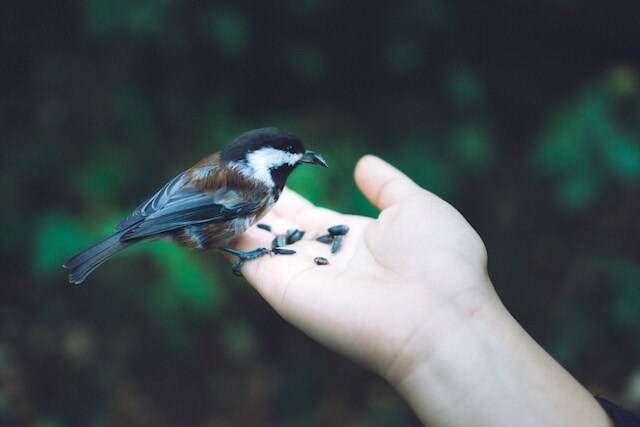
The Benefits of Bird-Human Bonding
Reducing Stress
Bird-human bonding has been found to have a positive effect on human mental health by reducing stress.
Simply spending time with birds and observing their calming behaviors can help reduce anxiety and improve overall mood.
Additionally, the act of caring for a bird, such as feeding and cleaning, can provide a sense of purpose and responsibility that is beneficial for mental health.
Research has also shown that having a pet bird can lower blood pressure and decrease the risk of heart disease.
The presence of birds in the home can create a calming environment that promotes relaxation and reduces stress levels in both humans and birds.
Physical Health Benefits
Birds provide physical health benefits to their human companions as well. The act of caring for a bird is often accompanied by physical activity such as cleaning cages, providing fresh food and water, and playing with toys.
This regular movement helps improve cardiovascular health, flexibility, coordination, and balance.
Additionally, some species of birds require regular exercise outside of their cages which provides an opportunity for owners to engage in physical activity together with their feathered friends.
Emotional Support
Birds can also offer emotional support to humans during difficult times. They are known to be empathetic creatures who pick up on human emotions and respond accordingly.
If an owner is feeling sad or upset, a bonded bird may offer comfort by cuddling or vocalizing soothing sounds.
Furthermore, owning a bird can help individuals combat feelings of loneliness or isolation by providing companionship that helps fill emotional voids.
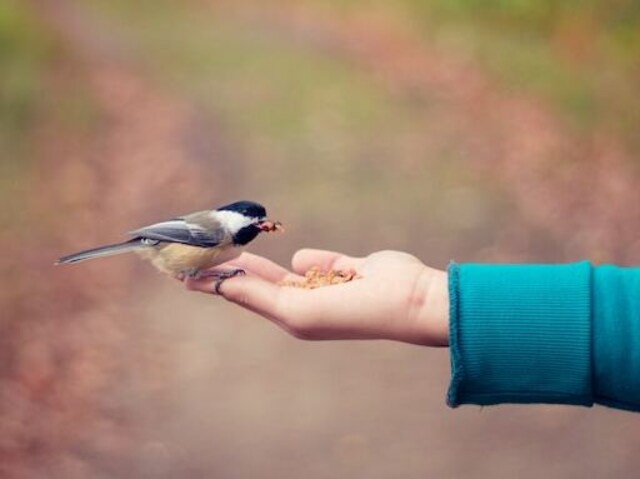
Conclusion
Developing a bond with a bird has numerous benefits for both the animal and its human companion, ranging from reducing stress levels to providing physical activity to offering emotional support during difficult times.
For those seeking companionship from an intelligent species that offers unique attributes, bird-human bonding may be an excellent choice.
Not only do birds offer a beautiful and fulfilling relationship to humans, but they also promote mental and physical health.
By understanding the importance of bird-human bonding, individuals can enrich their lives with a loyal and loving companion for many years to come.
FAQs: Do Birds Bond with Humans?
Can birds form bonds with humans?
Yes, many bird species are capable of forming strong bonds with humans, especially with consistent interaction, trust-building, and positive reinforcement.
How do birds show affection towards humans?
Birds may show affection through behaviors like singing, preening, perching on shoulders, seeking attention, and even mimicking human speech or actions.
Are certain bird species more likely to bond with humans?
While individual personalities vary, parrots, cockatiels, and budgies are known for their sociability and ability to form deep bonds with humans.
How can I build a bond with my pet bird?
Building a bond with your bird involves spending quality time together, using positive reinforcement, offering treats, and engaging in interactive play and training sessions.
Do birds remember their human owners?
Birds have good long-term memory and can remember their human owners for extended periods, especially when they have formed a strong bond.
Can birds become emotionally attached to humans?
Yes, birds can become emotionally attached to their human caregivers. They can develop feelings of trust, love, and dependence similar to other companion animals.
What are the signs of a strong bond between a bird and a human?
Signs of a strong bond include seeking physical contact, displaying excitement upon seeing the owner, responding to their voice, and showing signs of distress when separated.
Can birds bond with multiple humans?
Yes, birds can form bonds with multiple humans in a household. However, they often have a primary caregiver whom they are most closely bonded with.
How long does it take for a bird to bond with its owner?
The time it takes for a bird to bond with its owner varies. It can take weeks, months, or even longer depending on the bird’s personality, past experiences, and the level of interaction.
Is it possible for wild birds to bond with humans?
While it is rare, some wild birds can form bonds with humans through consistent and positive interaction. However, it’s important to respect their natural behaviors and consider their well-being in captivity.

